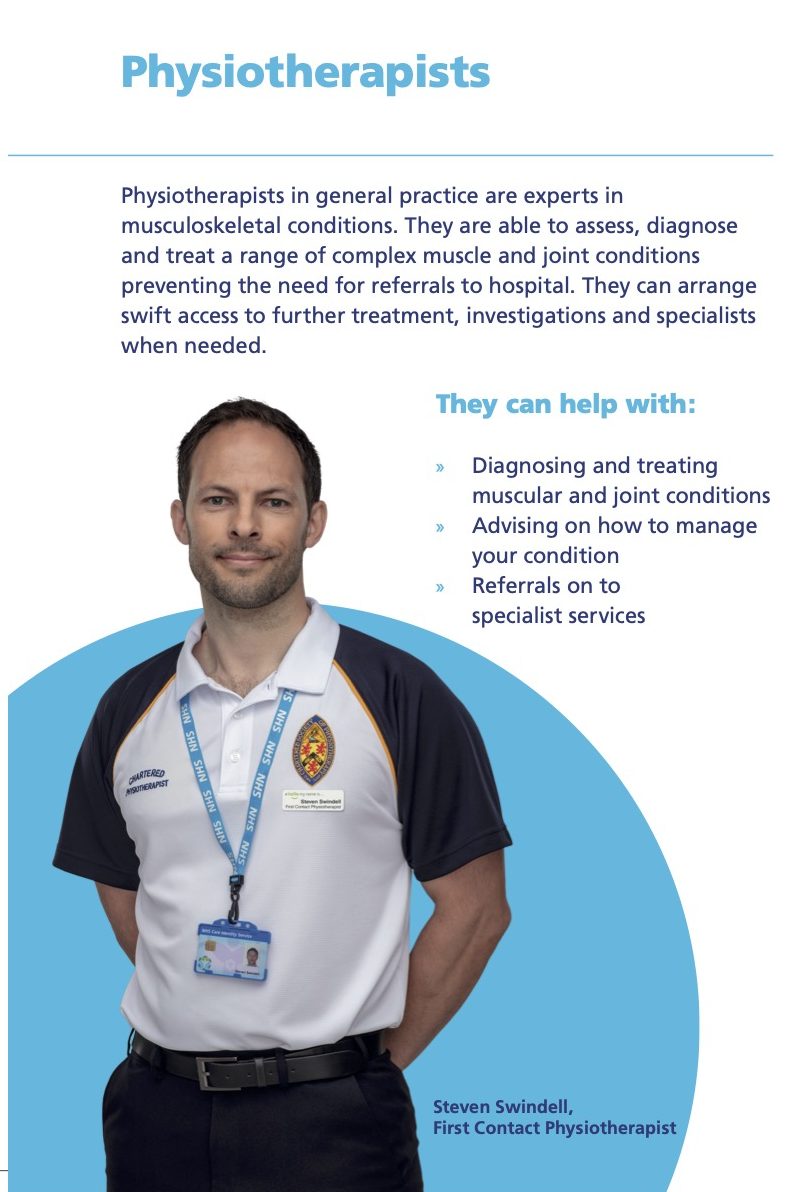Physiotherapy
Physiotherapists in general practice are experts in musculoskeletal conditions. They are able to assess, diagnose and treat a range of complex muscle and joint conditions preventing the need for referrals to hospital. They can arrange swift access to further treatment, investigations and specialists when needed.
Four new patient pathways for core rheumatology conditions
The Getting It Right First Time (GIRFT) programme, which now incorporates Best MSK Health, has worked with a range of specialty stakeholders to develop and share four new pathways for core rheumatology conditions, supporting GPs and clinicians across the pathway to provide the best patient care and allowing patients and commissioners to see what they can expect from a service.
Pathways for inflammatory arthritis, Giant Cell Arteritis (GCA) and suspected GCA, connective tissue disease, and Axial Spondyloarthritis (axial SpA) are now available.
First Contact Practitioners & Advanced Practitioners – Musculoskeletal
The First Contact Practitioners and Advanced Practitioners in Primary Care: (Musculoskeletal) A Roadmap to Practice is a supportive document that provides a clear educational pathway from undergraduate to advanced practice for clinicians wishing to pursue a career in primary care.
The vast majority of musculoskeletal first contact practitioners are physiotherapists with enhanced skills. They can help patients with musculoskeletal issues such as back, neck and joint pain by:
- assessing and diagnosing issues
- giving expert advice on how best to manage their conditions
- referring them onto specialist services if necessary.
Patients with back and joint pain, including conditions such as arthritis, will now be able to contact their local physiotherapist directly, rather than waiting to see a GP or being referred to hospital. Patients can also see a physiotherapist by speaking to the GP practice receptionist or by being referred by their GP.
By making it easier for patients to access physiotherapist, patients will have quicker access to diagnosis and treatment, helping them to manage their conditions more effectively and recover faster, so they can get back to normal life quickly. They will help GPs to manage their workload more effectively, and reduce the need for onward referrals.
In 2018/19, the Elective Care Transformation Programme piloted patients attending a clinic with a musculoskeletal first contact practitioner instead a GP. Evaluation of more than 6,800 appointments showed that patients were:
The GP five-year contract announced funding for new 20,000 primary care healthcare professionals such as physiotherapists. From 2020, GP practices will be able to access funding to employ their own musculoskeletal first contact practitioner. Local plans are also being developed to deliver musculoskeletal first contact practitioner services over the next 5 years.

